
- •Russian Academy of Sciences
- •Read the text
- •Methodology
- •Conclusion
- •What makes a good summary?
- •Abstract
- •There are two kinds of abstract
- •Annotation writing
- •Sample descriptive annotation
- •Sample critical annotation
- •Annotated bibliography
- •Sample annotated bibliography entry
- •4.2. Writing Correspondence
- •Personal versus professional e-mail
- •Organizing an e-mail
- •Considering audience, purpose, and tone
- •Establishing a respectful tone
- •E-mailing a peer
- •E-mailing a scientist you do not know
- •Establishing the context of an e-mail
- •Managing e-mail
- •A full block format letter (from one person to another):
- •A modified block format letter (from one person to another):
- •A modified block format letter (from an organization to a person):
- •Your Address
- •The Date
- •Recipient’s Name and Address (inside address)
- •The salutation
- •The Subject
- •The Text of Your Letter (the body of the letter)
- •The Closing
- •Your Name and Signature
- •The 6th International Conference “Rivers of Siberia”
- •Participating in the discussion
- •Moderating the discussion
- •II. Conferences and symposia
- •III. ОСНОВЫ РЕФЕРИРОВАНИЯ И АННОТИРОВАНИЯ. ПРАКТИЧЕСКИЕ РЕКОМЕНДАЦИИ
- •Полезные фразы при анализе заголовка статьи:
- •Flat prospects
- •Digital media and globalization shake up an old industry (идея статьи)
- •A German company tries to deal with an unwanted endorsement (идея статьи)
- •Наречия и логические связки времени
- •Связки, вводящие новую информацию
- •Rendering of the article "Trouble at till"
- •English for Master's Degree and Postgraduate)
- •Grammar revision
- •Тренировочное упражнение
- •Тренировочное упражнение
- •Reading: читающий, читая
- •Тренировочное упражнение
- •Тренировочное упражнение
- •Переведите следующие словосочетания на русский язык:
- •§ 4. Глагол to be в сочетании с инфинитивом
- •Сложные формы герундия
- •Тренировочное упражнение
- •Укажите, в каких предложениях нужно употребить слово «который» при переводе их на русский язык.
- •§ 16. Инфинитивная конструкции «сложное подлежащее»
- •при сказуемом в действительном залоге
- •Глаголы, выражающие долженствование
- •§ 23. Предложения с вводящим словом «there»

71
The Closing
After the body of text, your letter should end with an appropriate closing phrase.
The safest option is “Yours faithfully” (when you don’t know the name of the person to whom you are writing, ie. when you began “Dear Sir/Madam”) or “Yours sincerely” (when you do know their name). If you are already acquainted with the recipient, it may be appropriate to use a phrase such as “Best regards”, “With warmest regards”, or “Kind regards”.
The closing should be:
Left-aligned for full block format
On the right (tab across so it matches up with your address) for modified block format
Why use these phrases? Although “Yours sincerely” and “Yours faithfully” might sound archaic, they are time-honored ways to close a formal letter.
Your Name and Signature
Put several blank lines (four or five) after the “Yours sincerely,” or “Yours faithfully,” then type your name. You can optionally put your job title and company name on the line beneath this.
Joe Bloggs
Editor-in-chief
Your name and signature should be:
Left-aligned for full block format
On the right (tab across so it matches up with your address) for modified block format
Why leave a blank space? The blank space is so that, when you have printed the letter, you can sign it with your name. This is taken as proof that the letter really is from the person whose name is typed at the bottom. Sometimes, another person may sign the letter on your behalf. If this is the case, they should put the letters “p.p.” before their name, which stands for the Latin per procurationem meaning “by agency”.
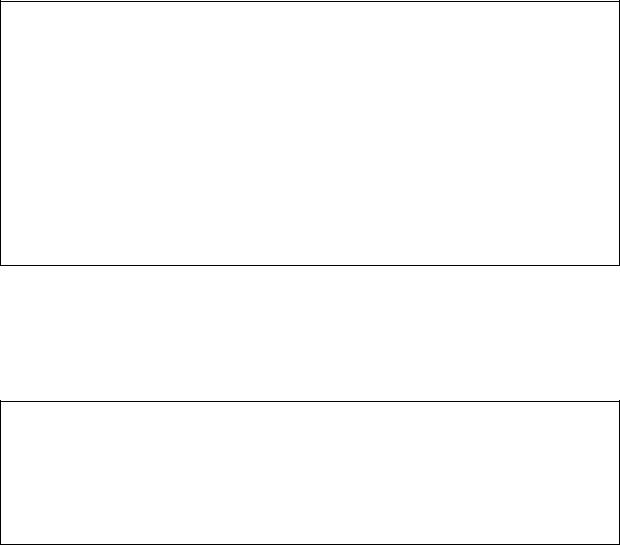
72
Punctuation
Regardless of punctuation style, the only letter parts (outside of the body) to be followed by punctuation marks are the salutation and complimentary closing. Within the body, the general rules of punctuation apply.
OPEN: No punctuation is used, except in the body.
STANDARD: The salutation is followed by a colon in formal letters, in less formal letters the comma can be used; the complimentary closing is followed by a comma. NOTE: The salutation and closing should be punctuated consistently: either both are followed by punctuation or neither is followed by punctuation.
Formatting Envelopes for letters
It is best to type an envelope. Most word programs contain an envelope labeling function to help you. All you need to do is to indicate the size of envelope you want to use and type the correct information, for example:
Sending company's name and address |
Postage |
|
is sometimes printed here |
stamp |
|
|
|
|
|
|
Ms.Maggie Jones
Angel Cosmetics Inc.
110 East 25th Street
New York
NY 10021
USA
Exercises
1. Read and translate the following letters. Analyze the style and vocabulary.
Requests and replies
Dear Professor Green,
Thank you very much for your letter of… I am making use of the opportunity to ask you if you could recommend me the literature on the problem of economic development in African countries. I need it badly for my research.
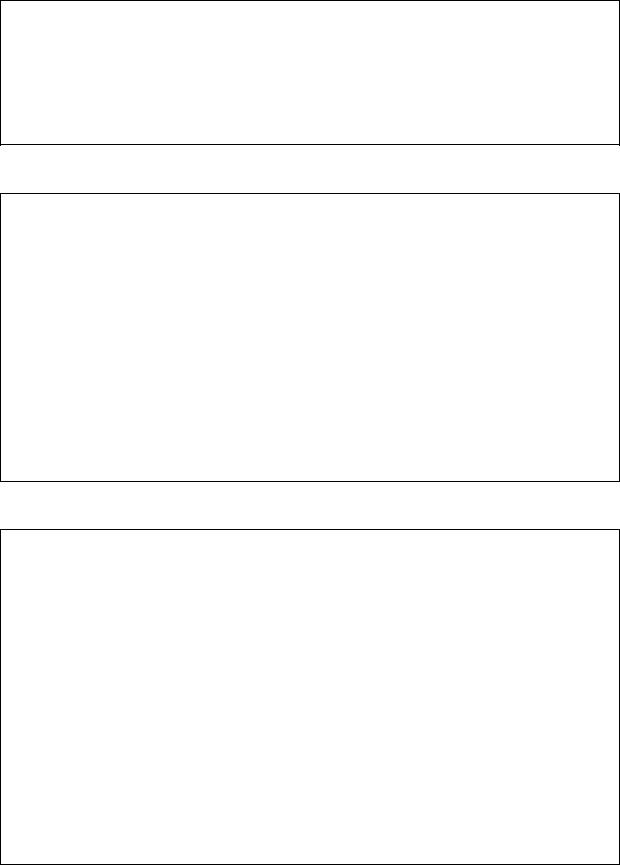
73
I would appreciate your help very much.
Yours sincerely,
Robert. A. Sparrow
Dear Dr. Lawson,
Thank you very much for your letter of 20 May. I enjoyed reading it immensely.
I am approaching you with a request. Would you be so kind as to send me the Statistical YearBook for 2010, if it is available? I need it badly for my research.
I shall be very grateful to you if you can oblige.
With best wishes,
Yours sincerely,
Dear Mr. Sparrow,
Thank you for your letter from which I learn that you study the problem of economic development in African countries. It certainly is very important problem and I wish you every success in your work.
As you requested I am sending you a reference list which I hope will be useful. If you need any further help, do not hesitate to write to me.
Yours sincerely,
Roger. A. Green

74
Dear Prof. Palmer,
I wish to express my sincere gratitude to you for extending to me an invitation to visit your laboratory. I accept it with great pleasure.
In response to your request I have sent а paper entitled «The Description of Bilingualism» and I have made all the arrangements for your arrival and hotel accommodations.
In reply to your request to assist in contacting other scientists and scholars interested in the Conference I am enclosing a list of them.
Yours sincerely,
Useful phrases
Requests
I am writing to inquire about … We would like to ask you to…
I would be much obliged to you if you could give me some information about…
I would appreciate it (very much) if you could supply me with a reprint of this article.
I would be (very) gratеful to you if you could…
Could you inform me about…?
Please let me know whether I may have the text of my paper published. (distributed among the participants) Would it be possible for you to help us…?
Replies
I am happy to be of help (assistance) to you.
I am glad that I can help you in this matter.
I am pleased that I can offer you this help.
The only help that I can give you is…
I am very sorry that I cannot help you.
Unfortunately, I’m unable to help you
I am sorry I have to decline your request…
We (very much) regret to inform you that …
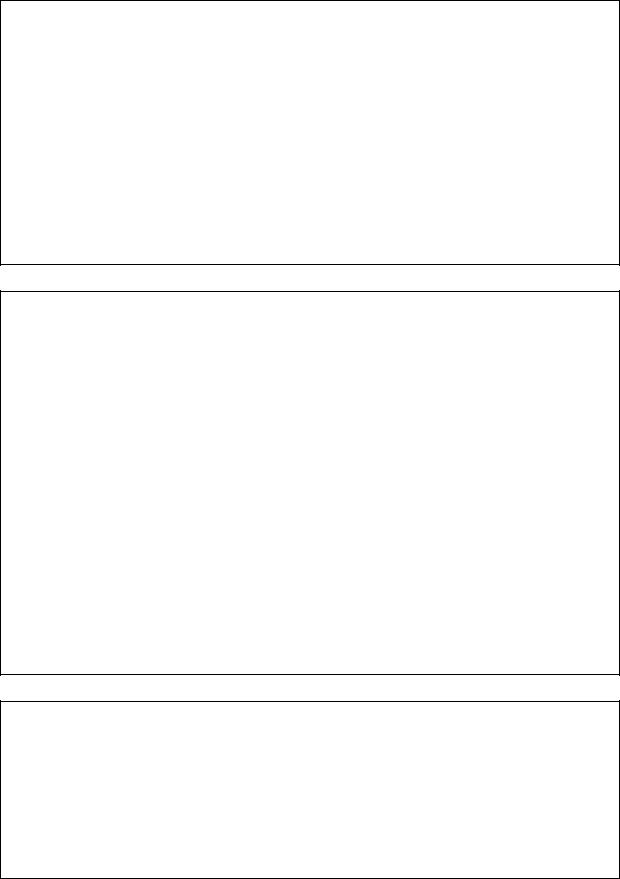
75
Publications
Dear Sir,
I have just heard from Mr. T. who approached you in the matter of an English edition of my book on ... He informs me of your kind suggestion that I should send you an English summary of my book together with a copy of the original (Russian) version. I am sending the book and the summary under separate cover.
I am very grateful to you for your interest.
Yours faithfully,
Dear Professor P.,
We have started the publication of a new journal “ ….” in which we intend to deal with the problems of…. Since the journal covers your field of study, we hope it will call your interest.
In this connection we cordially invite you to cooperate with us and would welcome any contributions from you. Perhaps you will contact other people who will be willing to submit their papers, detailed abstracts and other publications to our journal.
Thank you for your cooperation.
Sincerely yours,
Walter R. Winston
Editor-in-chief
Dear Sir,
You will find enclosed the original and 2 copies of the MS of my paper «....».
I should be very happy if you could accept the paper for publication in your Journal. Yours faithfully,
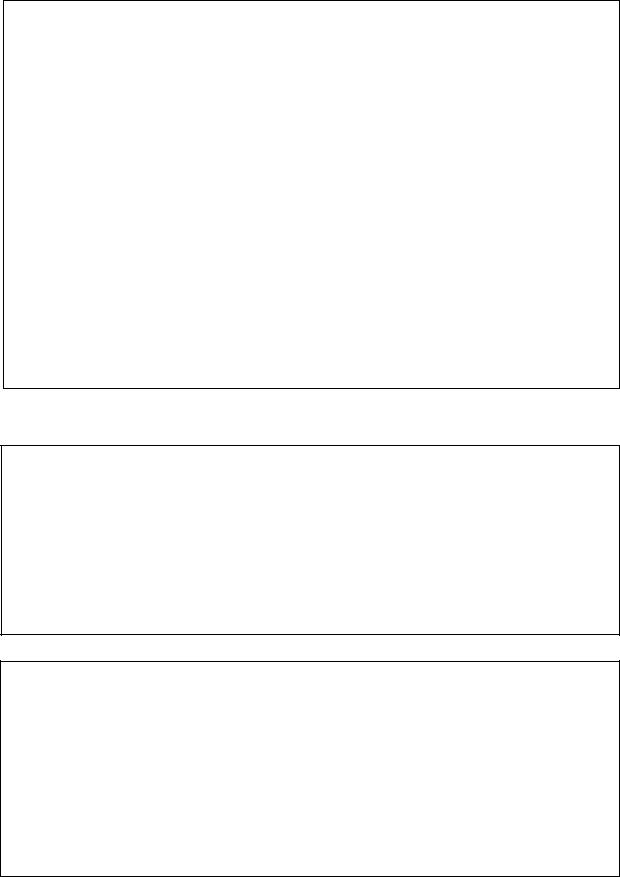
76
Dear Mr. E.,
Allow me to refer to our correspondence a few weeks ago regarding the possibility, of publication of my book «...» by the .... Press.
In your last letter you pointed out that the initial comments with regard to my book were favorable and asked me to let you know when I have finished revising it.
The new version of my book is completed and, accordingly, I am going to submit the opening and the concluding chapters as well as the table of contents to you on approval.
I am very grateful indeed for your offer to arrange for an American edition of my book and for all your assistance and encouragement.
Kindest regards,
Dear Sir,
I have received my paper -No ... together with the comments of the referees. I have duly considered the suggestions, which I find very reasonable and acceptable. I have made the appropriate amendments and sent off the manuscript for editing under separate cover.
Yours faithfully,
Dear Professor A.,
I have received your letter of… with your request for publication. Could we have an abstract of your article amounting to about 200 words for publication in our journal?
We are looking forward to receiving this abstract not later than 15 April.
Best regards,

77
Useful phrases
I should be very happy if you could accept the paper for publication in your Journal
The new version of my book is completed and I am sending it to you on approval.
I am very grateful indeed for your offer to arrange for an American edition of my book
I have received your paper for publication. Could we have a summary of your article? We invite you to contribute to our journal. We welcome any contribution from you.
Conferences, congresses
Dear Professor M.,
Recently I received the first announcement of .... from your colleague, Dr N. I would be interested in participating in this meeting and would like to propose giving a review paper on the topic of .... My group at .... has been very active particularly in the field of
.... and we have published numerous papers during the past few years. You may also recall my correspondence with you some years ago when I was involved in ....
I am enclosing copies of my earlier work in ... I would appreciate it if you could provide me with a formal letter of invitation to participate in your Conference.
Kindest regards,
Dear Dr. Stanley,
The National Geographic Society is very happy to invite all scientists interested in… to participate in the work of the 14th International Congress on “….” To be held in New York,
June 13-18, 2010.
We intend to arrange into different sections presentations of about 600 papers.
The Program of the Congress will include 4 lectures and 6 invited papers in the plenary
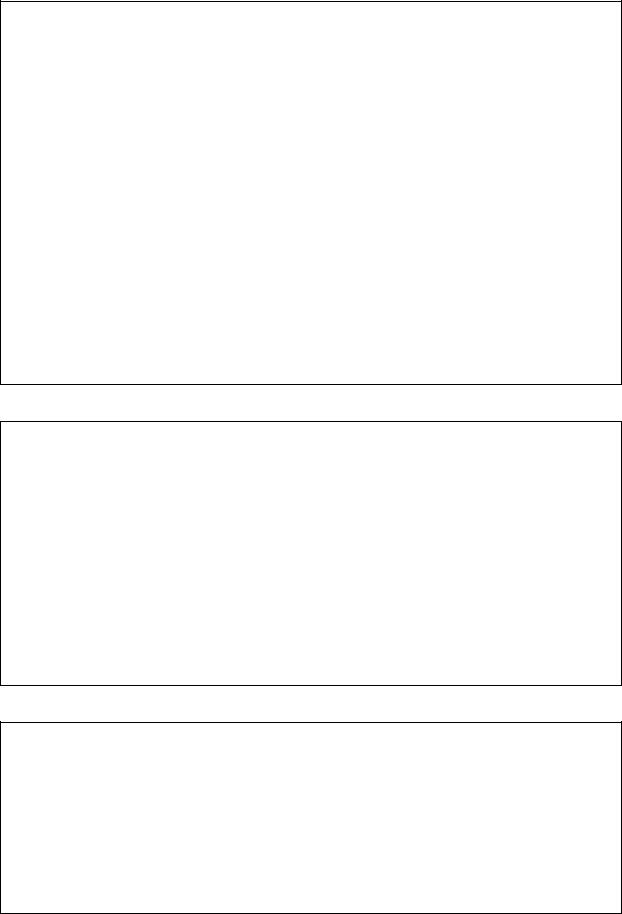
78
sessions on subjects of general interest. Apart from contributed paper sessions, we are planning round-table discussions with the participation of outstanding scientists in the area of
“ ….”, workshops and a panel.
The Scientific Program will be complemented with visits to scientific institutions and research centers in the country.
A diversified Social Program will be offered for the pleasure of the participants and accompanying persons.
If you wish to participate in the work of the Congress, please complete the form enclosed.
Sincerely yours,
M. Colin,
Secretary of Organizing Committee.
Dear Dr. Goodman,
On behalf of our Organizing Committee I would like to invite you to the XI Sociolinguistic Conference which will be held on April 20-22. In view of your special interest in Sociolinguistics I would like to invite you to present a paper.
Please complete the forms enclosed and return them at your earliest convenience so as to put your name on our mailing list for further information.
Sincerely yours,
Dear Dr. Carroll,
I am very grateful to you for your letter of February 25, 2010 in which you invite me and my colleagues to participate in the work of the Congress on «Language and Reality».
As far as I am concerned I accept your invitation with great pleasure. I have recently completed a series of investigations on the problem in question and could give a talk on the
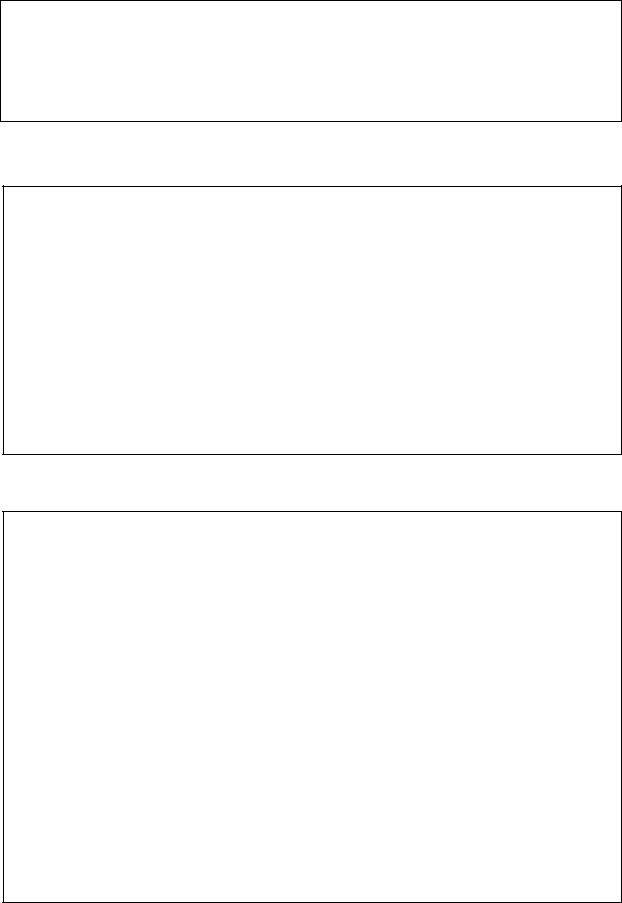
79
methods we used in our work. The results obtained are beyond all our expectations.
I am looking forward to hearing from you soon.
Sincerely yours,
Dear Dr N..
I will indeed be most happy to attend your Conference and give a talk on the topic suggested by the Committee. I was very flattered by the interest of the Committee and will strive to fulfill their expectations. Thank you for conveying the invitation of the Committee.
Yours sincerely,
Dear Professor M.,
I shall be very pleased to participate in the session chaired by Dr N. because it will give me an occasion not only to talk about the subject of my interest, but also to see many of my colleagues and friends.
I am uncertain, however, of the type of talk which you are requesting. Would you like me to present a review about some aspects of.... or a talk about my latest interest? In the former case, I am uncertain what topic would fit most readily into your program:
...., or a review entitled.... If you prefer a more detailed talk about my most recent interest I will choose to speak about ... Please let me know which type of talk you would like me to present.
Yours sincerely,
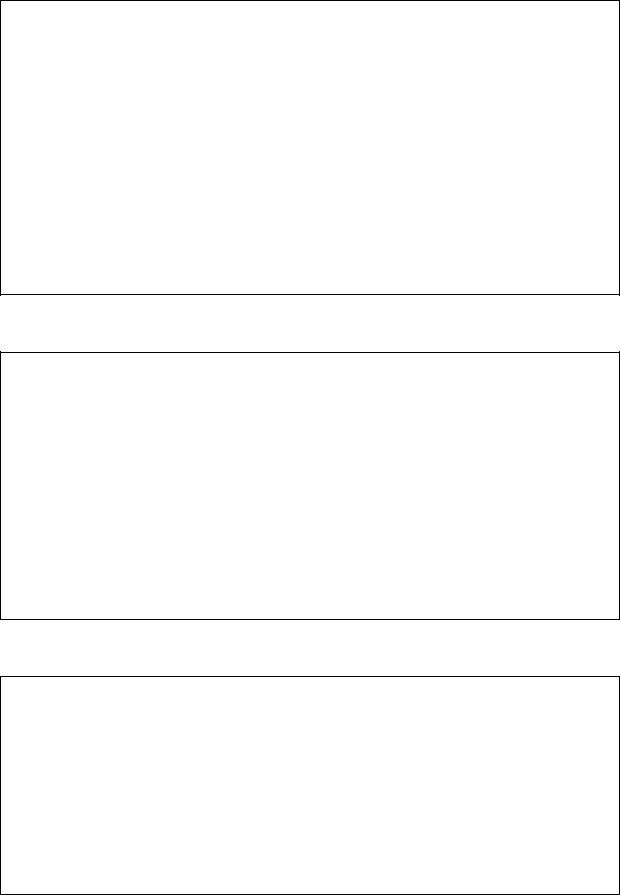
80
Dear Dr J.
I should like very much to attend your conference. I realize that we are now past the deadline for preliminary registration, but I hope that it is still possible to attend. If it is, please send at your earliest convenience information and the required registration forms.
Best regards.
Yours sincerely,
Dear Dr Т.,
In my letter of April 10th I expressed my desire to attend the Conference, but have received no reply. I will look forward to receiving the necessary forms and any other information you have for Conference participants. Since I have not heard from you, I am writing today to inquire whether any such information is available yet and whether this is the correct address to write to with such a request.
Yours sincerely,
Dear Norman,
This is a hurried note. Is there any chance of your attending the International
Conference of ............................................... |
in ...... |
which I understand begins at the |
end of August? It looks as if |
I might be able to go. I wonder if you could let me know |
|
your personal plans for the summer. In case we could not meet at the Conference I might be able to arrange a quick visit to your place if 1 go to ... for the Conference.
Kindest regards,

81
Dear David,
Dr S. has just told me that an international meeting of experimental and theoretical chemists is planned for April 16th—18th next year. I would like to attend the meeting. Could you possibly let me know more about it so that 1 may make my plans accordingly? Many thanks.
Excuse this brief note. I am off to ..... |
where I am to attend a meeting of the .... |
Association. |
|
Kindest regards, |
|
Useful phrases
Invitations |
Replies |
I/we would like to invite you to the symposium on…
I am writing to invite you to the meeting of the Executive Committee of the Symposium.
We are pleased to inform you that…
It gives me great pleasure to invite you to attend our International Conference.
It is my great pleasure to invite you to participate in the Congress.
We are looking forward to your participating in the Congress.
We kindly ask you to prepare a paper on…
We would like to welcome your report.
I am pleased / It’s a pleasure to receive your invitation to attend …
I am pleased/delighted/grateful to accept your invitation to participate in the conference on …
It’s a great honor and pleasure for me to accept your invitation to present a paper at the conference devoted to …
I accept your invitation with great pleasure. I (greatly) appreciate your invitation to attend the forthcoming/upcoming conference on …
Thank you very much for your kind invitation to…
I am sorry/I regret that I’m unable to accept your invitation to attend the conference.

82
I am (very/terribly) sorry (to have) to decline your kind invitation to take part in the conference.
I must apologize to you for having to decline your ….
It is a great pity that I have to refuse from…..
Thank you letter
Dear Dr. Higgins,
I am writing to express my deep gratitude for the excellent organization of the Conference which it was my privilege to attend. The Conference was most interesting and beneficial. It has established personal relations and friendships too. I greatly enjoyed meeting your colleagues. Please thank them for their effort and time.
I should like to express my warmest thanks for providing a chance to visit your country.
With best regards to you and your colleagues,
Sincerely yours,
Useful phrases
I wish/would like to thank you (very much) for… We thank you (very much) for inviting us to …
I am much obliged to you for sending me a kind invitation to … It is so kind of you to send me…
We are glad/pleased (It was a great pleasure) to receive your letter… Thank you very much for sending me the reprint of my paper.
We are (very) grateful to you for …
I (do/really) appreciate your assistance.
83
2. Translate the following letters into English.
А.
Уважаемый г. Орлов!
Мне было приятно получить Ваше письмо от …. . Ваши работы действительно представляют большой интерес для науки. Изучение этой проблемы является важным вопросом, т.к. это явление связано с нарушением экологии.
Я признателен Вам за Вашу статью. Я внимательно изучил Ваш материал и считаю, что все данные, полученные Вами, совершенно обоснованы.
В настоящее время мы разрабатываем новую комплексную программу по изучению данной проблемы и будем рады, если Ваша лаборатория примет участие в данной работе. Если Вы примите наше предложение, просим изложить Ваши соображения.
Искренне Ваш,
Д. Смит, зав. лабораторией экологических исследований.
Б.
Уважаемый г. Смит!
Огромное спасибо за Ваше письмо и высокую оценку моей работы. Мы с удовольствием сообщаем, что принимаем Ваше предложение принять участие в Вашей программе. Мы сейчас прорабатываем наши предложения и в течение нескольких дней вышлем их Вам.
Искренне Ваш,
А. Орлов, зав. отделом.
В.
Уважаемая госпожа Смирнова!
Мы сообщаем Вам, что следующее заседание Комитета состоится в Париже 14 февраля 2010 г. Нам было бы приятно, если бы Вы представили доклад по
84
результатам Вашего исследования. Сообщите нам, сможете ли Вы принять участие в этом заседании и, если это невозможно, может быть, Вы направите Вашего представителя.
Будем признательны за быстрый ответ.
С уважением, Н. Скотт,
председатель Комитета.
Г.
Уважаемый профессор Скотт!
Я признательна Вам за приглашение принять участие в заседании Комитета. К сожалению, я вынуждена сообщить, что не смогу приехать, т.к. в это время мы будем проводить серию экспериментов, которые будут длиться несколько месяцев. Мой коллега профессор Алексей Иванов любезно согласился представить доклад на данном заседании.
Искренне Ваша,
Н. Смирнова, руководитель проекта.
Д.
Уважаемый доктор Баскин!
Организационный Комитет III Международной Конференции по … приглашает Вас принять участие в работе конференции, которая будет проводиться в … с 3 по 7 июля.
Мы были бы признательны за быстрый ответ и надеемся иметь удовольствие видеть вас на конференции.
Прилагаем программу конференции и форму заявки на участие.
С уважением,
Фрэнк Уильямс, Председатель Оргкомитета.
85
Е.
Уважаемый г. Уильямс!
Благодарю за приглашение принять участие в конференции. К сожалению, я не смогу выступить с докладом, поэтому прошу сообщить о возможности публикации моей статьи без моего личного участия в конференции.
Буду признателен за положительный ответ.
С уважением, Н. Баскин.
3.Write the appropriate letters:
a)to accept/decline the invitation of the Organizing Committee to attend the …. Conference ;
b)to Dr M. asking him to read your article because you want to know his opinion on it;
c)to your foreign colleague telling him your impression of the paper he sent you;
d)to the Editor of a scientific journal asking about the possibility of publication of an article;
e)to inquire about the conference which is due to be held in London this year;
f)to the Organizing Committee in response to their invitation to you to submit an abstract for the contributed paper to the … Conference.
4.3.Giving oral presentation
Oral presentations are richer than written documents. They allow you to establish stronger contact with the audience and better convince them of your viewpoint through verbal and nonverbal delivery, as well as the ensuing interaction. Oral presentations have a price, however, in terms of the audience's time. If you give a poor 15-minute presentation to an audience of 200 people, you have wasted the equivalent of 50 hours of work — more than a week of someone's work time. Preparing effective oral presentations, like writing effective scientific papers, takes time, but it is time well invested.
SOME USEFUL ADVICE TO A SPEAKER
1. Before you begin writing your paper think about two things: your purpose and your audience.
86
2.Regardless of your topic you should take into consideration the audience's background and the range of their knowledge in this particular field.
3.Don't try to cover too wide a field in your talk: one main idea consistently and methodically developed will ensure the understanding and appreciation of the audience. Arrange your arguments so as to support this main idea.
4.There are two ways of delivering your speech: talking or reading.
If you decided on the first way, a previously prepared outline or notes on the cards will be good guides during your presentation. They will help you to keep the order of points and not forget something important.
You may also write down your speech word for word but don't try to learn it by heart. Instead, practice delivering the information the speech contains in parts. After that, go over the entire speech until you can speak freely.
5.If you read the text, make the rhythm and pace of your talk closer to those of natural speech. To keep up contact with the audience don't forget to look up regularly.
6.Emphasize the most important points, changing the tone and rate of your speech and making deliberate pauses. This will help to hold the attention of the audience.
7.You ought to remember that your listeners don't have the opportunity to come back to what has been already said. They can't stop at a puzzling idea and think it over. For this reason, don't neglect repetition, specifications, internal summaries, etc.
8.If your speech exceeds the time allotted, don't be tempted to speed up your delivery. Think over in advance which parts of the text can be left out.
9.You are to talk to the audience as if you were talking to a group of your very good friends. Make your listeners feel that you are talking to each one individually.
Structure of a presentation
A well-organized presentation with a clear structure is easier for the audience to follow. It is therefore more effective. You should organize the points you wish to make in a logical order. Most presentations are organized in three parts, followed by questions: an introduction, main body, and conclusion. The introduction, in turn, may involve a) the speaker's appreciation for being able to present his/her paper, b) the statement of the problem and its importance (or the statement of the aim of the talk) and c) the outline of the sections of the paper.
In the main body of the presentation, the speaker deals with the research done, the methods/techniques applied, and the data/results obtained. The vocabulary used
87
largely depends on the field of research. Nevertheless, there are phrases common to any presentation, irrespective of the field, that make it better arranged and more comprehensible for the audience. Among them are means of a) making the composition of the text distinct, b) specifying and clearing up the points being discussed, c)drawing the audience's attention to the most important points.
Read the abridged text of a paper presented at a conference paying special attention to its structure. What are the main compositional parts?
A PAPER AT A SCIENTIFIC SESSION
Mr. Chairman, Dear Colleagues, Ladies and Gentlemen!
(1)It is a great pleasure for me to attend this session and to have an opportunity to give a talk here.
(2)In my talk today I am going to deal with the phase transition of solid furan at
150.0K. The polymorphic solids of furan have been investigated by calorimetric, X- ray, nuclear magnetic resonance, and infrared spectroscopic methods. However, all these experiments have not determined the properties of solid furan in the vicinity of the phase transition at 150.0 K. Since vibrational excitations are very sensitive to the immediate environment of a given molecule in the crystal, we expected that their study should contribute to a better understanding of polymorphism in solid furan. The subject therefore, I believe, might be both of theoretical and practical interest.
(3)In this talk, I shall first present an experimental study of the infrared spectra of solid furan close to the phase transition. I shall then turn to the discussion of the results obtained. And finally, I shall comment on the nature of the phase transformation in solid furan.
(4)First then, the experiment. A low temperature infrared cell has been built where the temperature is automatically controlled throughout the range of 80—300 К with a very high precision, namely 0.1 K. By condensation of furan vapor on a window cooled at a temperature below 150 К we can obtain phase II. By heating the window we attained a total sublimation of the crystal at the transition temperature. The spectra were recorded on a Perkin-Elemer model 125 spectrometer.
(5)Now F11 pass over to the consideration of the results obtained. Slide 1, please. The slide shows the results of one series of measurements in the 580—620 cm 10 region. The spectra are recorded in steps of 0.1 К near the transition point during heating. It should be stressed that in the high temperature phase the components of the
88
band due to exciton splitting disappear. The infrared data suggest that the transition is sudden. The multiplet structure of the exciton bands observed in the low temperature phase indicates an ordered crystal. In the high temperature phase, the symmetry of translation is broken due to a reorientation disorder. Thus, exciton structures of bands disappear in phase 1. Our infrared study of the out of plane mode in phase 1 shows that vibrational resonant transfer rate is about 0.02 sec and the reorientational relaxation takes about 0.04 sec. In other words, vibrational excitons in disordered crystals are "localized" excitons which map out the local structure of the solid. Slide 2, please.
(6) From our data it can be concluded that the vibrational excitons interactions are very sensitive to the phase transition in solid furan and vibrational excitons are present in their disordered phase. Thank you. And now I would be happy to answer your questions.
1. What phrase does the speaker use to express his appreciation? Here are some other ways of expressing gratitude:
a) Expression of appreciation
I think it is a privilege for me to participate in this conference and I greatly appreciate it.
To begin with, I'd like to say I am very pleased to be here and to be able to take part in this meeting. I hope it will be very stimulating and useful for each of us here.
I'd like to begin by expressing my appreciation for this opportunity to exchange information on the problems which interest all of us.
It is a great pleasure for me to attend this representative meeting and to have an opportunity to give a talk here.
2.Study various ways of a) stating the problem and its importance,
(a)Stating the problem and its importance.
In my paper I am concerned with/I will concern myself with.... As is known, in recent years a considerable number of works have appeared on various problems of....
However, no detailed information is so far available on the phenomenon of... which is very important for .... Our research has been undertaken with a view to understand the mechanism of.... Now I will report the data we have obtained.
89
My talk deals with/is concerned with.... It is known that in the last few years there have been many studies of the phenomenon of.... Research into the properties of... is of great importance, because it may contribute to our understanding of the processes occurring in .... It was the purpose of our study to determine some of the features specific to the processes of.... Now let me present the results obtained.
The aim/purpose of my talk today is to consider/discuss .... In recent years much interest has been centered around the phenomenon of... because it is very important
for clarifying the nature of.... We have performed a series of experiments in order to |
||
determine .... |
The results we have obtained from the experiments appear to be quite |
|
different from those reported in the literature. Now I will present these results. |
||
My task today is to speak/report about.... |
Consideration of these phenomena is |
|
highly important as it may help to clarify the nature of... . |
||
|
b) Outlining the structure of the talk. |
|
To begin with, I will consider the theory of |
.... Then I will concern myself with the |
|
methods used. In conclusion, I will make an attempt to ... . |
||
I'll start by considering some aspects of.... |
Further I'll pass over to the discussion |
|
of... To conclude, I'll make some comments on ... |
. |
|
I will divide my talk into two parts. First, I'll consider some aspects of.... Then, I'll concentrate on ... .
I will start with the discussion of.... After a short account of... I will proceed to the consideration of.... I will finish with some remarks about the possible future course of developments in this field.
First, I will describe.... Then I will be concerned with.... Further I will analyze … Finally the results of … will be presented.
3. Read the main body of the paper. Which of the phrases presented below are
used...
a) to make the composition of the text distinct.
First, then ... .
Now I'll consider briefly ... .
Further I'll concern myself with ... .
At this point I'll speak in more detail about ... .
Let me now make some comments on ... .
90
Let us turn (back) to ... .
Now I'll pass/go over to ... .
I would now like to make a short remark on the other aspect of... . I would like to say a few words on ... .
b) to specify and clear up the points being discussed.
From this it follows that ... . Consequently, it is possible that ... . For this reason, it is feasible that ... .
That is... (The critical temperature, that is the temperature of melting, was maintained.)
Namely ... (At very high velocities, namely at 100 mph, ... .)
On the contrary,... (The effect can hardly be called regular. On the contrary, it occurs only ...)
On the one hand ... , on the other hand ... .
In other words (The band doesn't spread over, in other words it is localized in ...) In particular (This reasoning is inconsistent, in particular in its mathematical aspect.)
Strictly speaking, ... .
c) to draw the attention of the audience to the most important points
It is essential that ...
It is particularly important/interesting that ...
It is of great interest/significance/importance that ...
It should be noticed that ...
It is to be noted that ...
I'd like to draw/call your attention to ...
It is interesting to note that ...
It is important to recognize that ...
It should be stressed (emphasized, underlined, underscored) that ...
Of special interest/importance is the fact that ...
4. Study various ways of concluding a paper.
Summarizing/To summarize what I have said (this phenomenon is psychological in nature).
Summing up/To sum up, it is evident that ... .
From this it can be concluded that ... .
91
In conclusion, we will say that ... .
To conclude, the most effective method of investigating this problem is....
When the presentation of the paper is over the speaker usually takes questions. When answering, the speaker may feel the need to comment on the question or apologize for certain looseness in definitions, citations, data estimation etc. Here are some possible ways of a) responding to questions and b) apologizing for lack of clarity in answers.
a) commenting on a question or a point of view expressed
That's a good question. Thank you for asking it.
It's a difficult/intricate question. 1 can't give a detailed answer to it now. I'm glad you've asked me this question.
Yes, I understood you. The idea of ... seems interesting/very attractive to me. Well, your argument sounds convincing but don't you think that ... . Oh, yes. Your remark is quite relevant. Thank you for reminding me that ... .
I'm not sure this question should be answered. It's not quite relevant to the subject discussed.
Would you mind if I came back to your question later?
I'm afraid you misunderstood me. I didn't mean to say that ... .
I'm afraid I'm not prepared to answer your question at this point.
b) apologizing for lack of exactness in answers.
I haven't really considered the problem in this aspect, but I believe that....
Speaking off the cuff, I'd say that ... .
Roughly speaking, this problem might be regarded as ... .
The phenomenon itself may be described, so to speak, as ... .
In a way, this definition isn't exact but ... .
If I may put it this way, the explanation is possible if... .
I'm afraid I'm not prepared to give a detailed answer to this all at once. All I could say is ... .
If I remember it right, the assumption was advanced that ... .
4. Practice delivering your paper. Take into account the tips given. Use phrases suggested above.
92
4.4. Interacting during conferences
General information and vocabulary
1. Read the text. Find Russian equivalents of the underlined words and phrases. For more information and special terminology refer to the Supplementary Material section.
Scientific conferences are related gatherings offering plenty of formal opportunities to interact with other scientists. At a conference, you may be asked to present a poster, which is your chance to discuss your topic in more depth with interested attendees. At some point, you may also be called upon to chair a presentation session. Finally, you may be invited to take part in or perhaps even moderate a panel discussion.
An academic conference or symposium is a conference for researchers (not always academics) to present and discuss their work. Together with academic or scientific journals, conferences provide an important channel for exchange of information between researchers.
Conferences are usually composed of various presentations. They tend to be short and concise, with a time span of about 10 to 30 minutes; presentations are usually followed by a discussion. The work may be bundled in written form as academic papers and published as the conference proceedings. Usually a conference will include keynote speakers (often, scholars of some standing, but sometimes individuals from outside academia). The keynote lecture is often longer, lasting sometimes up to an hour and a half, particularly if there are several keynote speakers on a panel.
In addition to presentations, conferences also feature panel discussions, round tables on various issues and workshops.
Prospective presenters are usually asked to submit a short abstract of their presentation, which will be reviewed before the presentation is accepted for the meeting. Some disciplines require presenters to submit a paper of about 6–15 pages, which is peer reviewed by members of the program committee or referees chosen by them.
In some disciplines, such as English and other languages, it is common for presenters to read from a prepared script. In other disciplines such as the sciences, presenters usually base their talk around a visual presentation that displays key figures and research results.
A large meeting will usually be called a conference, while a smaller is termed a workshop. They might be single track or multiple track, where the former has only one

93
session at a time, while a multiple track meeting has several parallel sessions with speakers in separate rooms speaking at the same time.
At some conferences, social or entertainment activities such as tours and receptions can be part of the program. Business meetings for learned societies or interest groups can also be part of the conference activities.
The larger the conference, the more likely it is that academic publishing houses may set up displays. Large conferences also may have a career and job search and interview activities.
Academic conferences fall into three categories:
the themed conference, small conferences organized around a particular topic;
the general conference, a conference with a wider focus, with sessions on a wide variety of topics. These conferences are often organized by regional, national, or international learned societies, and held annually or on some other regular basis.
the professional conference, large conferences not limited to academics but with academically related issues.
Conferences are usually organized either by a scientific society or by a group of researchers with a common interest. Larger meetings may be handled on behalf of the scientific society by a Professional Conference Organiser or PCO.
The meeting is announced by way of a "Call For Papers" or a Call For Abstracts, which lists the meeting's topics and tells prospective presenters how to submit their abstracts or papers. Increasingly, submissions take place online using a managed service such as Community of Science or Oxford Abstracts.
A plenary session (with a plenary speech or plenary talk) is a term often used in conferences to define the portions of the conference when all members of all groups are invited to attend. Plenary sessions are typically scheduled both near the start of a conference, and in the latter half, but not typically at the final hour, due to many attendees leaving before the last day. Various prominent speakers often give opening plenary speeches, at the start of a conference, or closing plenary speeches, in the final plenary session. During those sessions, typically all other activities are suspended, or exhibit halls closed, to allow everyone to attend the plenary talks or sessions.
These sessions may contain a broad range of content from keynote speeches to panel discussions and are not necessarily related to a specific style of delivery.
A poster session or poster presentation is the presentation of research information by an individual or representatives of research teams at a congress or conference with an academic or professional focus. The work is usually peer reviewed.
